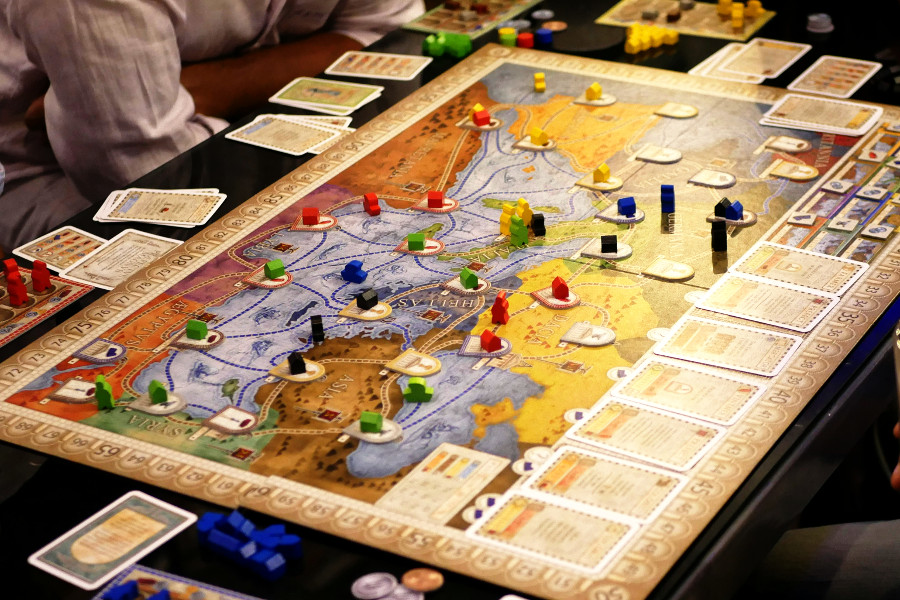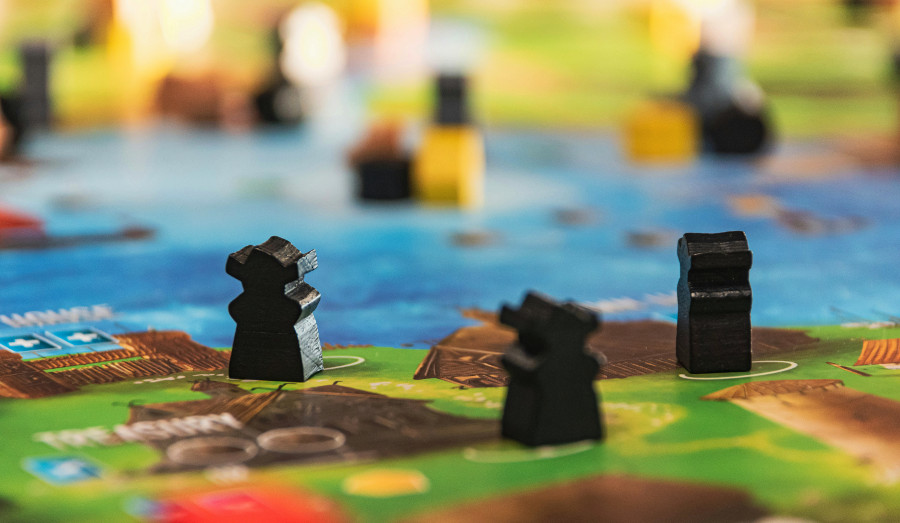How to Join a Board Game Club Near Me and What to Know Before Joining?
Joining a board game club opens the door to a world of fun, connection, and new experiences. Whether you’re a complete beginner or a seasoned player, these clubs offer a welcoming space to explore games, meet like-minded people, and unwind from daily stress. If you’ve ever wondered what it’s like, how to find one, or what to expect, this guide answers 15 common questions to help you feel confident and excited about your first visit.

1. What should I expect when joining a board game club?
Joining a board game club is a bit like stepping into a room full of possibility. People gather not just to play games, but to connect, relax, and share a hobby that sparks imagination and joy. The atmosphere is often casual, welcoming, and surprisingly diverse. You’ll find people of all ages and backgrounds, all brought together by the simple pleasure of sitting around a table and diving into another world. It’s not just about winning or knowing all the rules. It’s more about the shared experience. Expect laughter, learning, and maybe even new friendships. You don’t need to know anyone beforehand – just show up, be curious, and let the games do the rest.
2. How do I find a board game club near me?
Finding a board game club nearby is easier than you might think. We often assume hobbies like this are niche, but in reality, there are communities everywhere just waiting to be discovered. The internet is a great place to start – websites like Meetup and relevant Facebook group will provide you with initial options. Reddit has an r/boardgames/ subreddit, where people can point you in the right direction. Game stores are also surprisingly social spaces; many host weekly or monthly club nights. Don’t forget to check local libraries, cafés, and community centers too. Sometimes, a simple flyer or noticeboard can lead you to a welcoming table of players. If you’re curious, don’t hesitate. Show up once, and you might find your new favorite hangout. One of the most popular board game website is BoardGameGeek with lots of news and a forum section. You can ask around in the forum. Members will gladly help you.
3. Is there a membership fee to join a board game club?
Money is often a concern when trying something new, but most board game clubs aren’t out to make a profit. In fact, many are free to join or ask only for small, voluntary contributions to cover snacks or space rentals. It really depends on where the club meets. Game cafés might have a cover charge. Clubs hosted in someone’s home or a public library often don’t cost a thing. Think of it as a shared experience rather than a service. If there is a fee, it’s usually modest, and the return – hours of fun, connection, and mental refreshment – is more than worth it. Ask ahead so there are no surprises.
4. Do I need to bring my own games to a board game club?
You don’t have to bring your own games, though many people like to. Think of it like a potluck – there’s always food to share, but you’re welcome to contribute. Most clubs have members with generous game collections, and part of the fun is discovering games you’ve never seen before. Still, if you own a favorite game and want to introduce it to others, you’ll probably find a willing group. Just make sure to keep track of your pieces. Whether you bring a game or not, you’re part of the fun. It’s more about showing up and playing than what’s in your game bag.
5. What types of board games are typically played at these clubs?
There’s a whole universe of games out there, and board game clubs are the perfect place to explore it. You’ll come across everything from modern classics like Ticket to Ride and Catan to clever party games, cooperative adventures, and deep strategic challenges. One night you might be solving mysteries as a team, the next you're trading resources in a medieval town. The beauty is in the variety. Every table might be playing something different. Over time, you’ll start to discover your own preferences – light and fun, heavy and thoughtful, or something in between. It’s like a buffet of stories, mechanics, and human connection.

6. Are board game clubs suitable for beginners?
Yes, absolutely. Board game clubs are a great starting point if you’re new to the hobby. Most clubs aren’t about skill or competition. They’re about sharing time and having fun. You’ll find that people are happy to explain the rules and walk you through your first turns. No one expects you to be an expert. In fact, teaching is part of the culture. Every seasoned gamer was once new too. All you really need is a willingness to learn and a bit of curiosity. You’ll be surprised how quickly you pick things up. It’s a relaxed, friendly way to learn something new without pressure.
7. How often do board game clubs meet?
Board game clubs tend to find a rhythm that works for their members. Some meet weekly, others every other week, and a few just once a month. The sessions are often a few hours long, usually in the evenings or on weekends, when people can unwind and settle in. The important thing is consistency, but not obligation. You come when you can. Some clubs also host extra events or special themed nights. Over time, you’ll learn the rhythm that suits you. And whether you’re a regular or an occasional visitor, the door is usually always open.
8. What is the usual age range of members in a board game club?
One of the nicest things about board game clubs is how they bring different generations together. While many clubs lean toward adults in their 20s to 40s, you’ll often find people both younger and older sharing the same table. Some clubs are very family-friendly, while others are geared more toward adults. University clubs might be mostly students. A community center group might have a more varied mix. It all depends on the setting and the people. But whatever your age, there’s likely a space for you. Games, after all, have a way of leveling the field and making everyone feel like part of the group.
9. Do I need to commit to attending every meeting?
No commitment is necessary. Most board game clubs understand that life is busy and people come when they can. You might attend weekly or just drop in now and then. The structure is usually flexible. Some clubs ask for a quick RSVP so they can plan games and group sizes, but even that’s more of a courtesy than a rule. If you become a regular, great. If not, that’s okay too. It’s not about keeping score – it’s about creating a space where you can come and go as you like, knowing there will always be a place at the table when you’re ready.
10. Can I join a board game club if I don't know many games?
Yes, and that’s actually one of the best reasons to join. A board game club is like a hands-on library where every session is a chance to try something new. You don’t need experience or a mental list of titles. Just bring an open mind and a willingness to play. You’ll be surprised how generous people are with teaching and explaining. The more you play, the more familiar you’ll get with different styles and mechanics. Soon enough, you’ll go from feeling like a guest to feeling like a regular. Learning in this setting isn’t just easy – it’s fun.

11. Are there clubs that focus on specific types of games, like strategy or party games?
Yes, and that’s part of what makes the board game world so interesting. Some clubs cater to certain tastes. Maybe it’s heavy strategy games with lots of thinking and planning. Maybe it’s fast-paced party games full of laughs and wild guesses. There are clubs for cooperative players, role-playing fans, card game lovers, and even miniature painters. Some are general and open to all types of games. Others are more niche. It just depends on what you’re looking for. Once you find your style, chances are there's a group out there that shares it. You might even end up starting one yourself.
12. How can I start my own board game club?
Starting your own board game club might seem like a big step, but it’s really just about bringing people together. Pick a space – a living room, café, or community center. Choose a time that works, and invite a few friends to start. From there, word spreads. You can post online, hang flyers, or ask local game stores to share your info. Keep it simple at first. A few good games and a friendly atmosphere go a long way. The most important thing is making people feel welcome. If you create a space where people can relax and have fun, the club will grow naturally.
13. What etiquette should I be aware of in a board game club?
Board game club etiquette is really just about being respectful. Listen when someone explains a game. Handle pieces with care. Be patient with new players. Try not to talk over others or get too caught up in winning. And remember, it’s okay to make mistakes. Everyone does. If you bring a game, explain it clearly. If you’re a guest, be open to trying something new. Being kind and considerate makes all the difference. At the end of the day, a good game night is one where everyone leaves feeling included, whether they won or not.
14. Do board game clubs organize tournaments or special events?
Yes, and these events can be a highlight of the club calendar. Some groups hold tournaments for popular games, complete with brackets and prizes. Others run themed nights – like a spooky game night around Halloween or a co-op marathon on a rainy weekend. These events bring a different kind of energy, a sense of occasion. They’re a great way to meet new people and try games you might not usually play. And while the competition can be exciting, the emphasis usually stays on fun and connection. It’s not just about the game – it’s about the experience.
15. Is it common to socialize outside of game sessions in board game clubs?
Yes, socializing beyond game nights is actually quite common in board game clubs. When people gather regularly around shared interests, friendships naturally start to form. Some groups organize potlucks, movie nights, or casual meetups just to hang out without a game on the table. Others might chat online between sessions, sharing recommendations or planning future events. These connections make the whole experience richer, turning acquaintances into friends. Of course, not everyone wants to socialize outside the club, and that’s perfectly fine too. The beauty of board game clubs is that they offer both a fun activity and a welcoming community – whatever level of socializing you prefer.
Good luck with your adventure in the world of board games.



